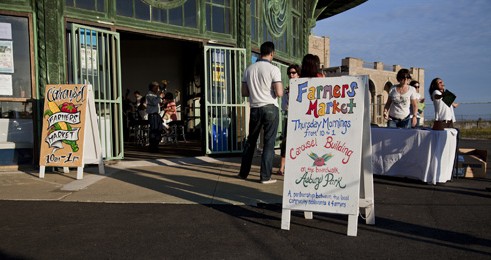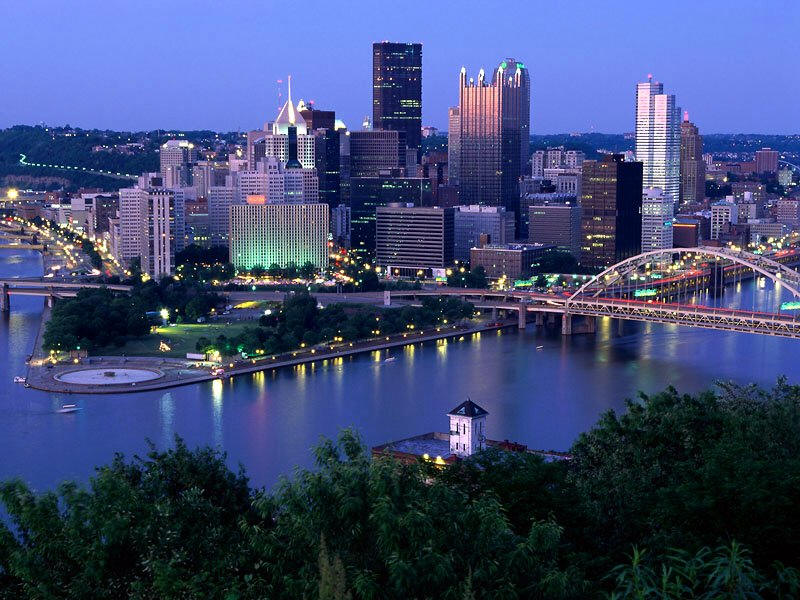New Jersey Future Blog
Local Agriculture Growing in Popularity and Importance
April 21st, 2011 by Teri Jover
- In 2005, the United Nations Food and Agriculture Organization reported that farms within or immediately adjacent to cities supply food to some 700 million urban residents worldwide. These are mostly small plots: vacant lots, yards and rooftops.
- In New Jersey, more than 140 community farmers markets operate throughout the state, allowing for small local farms to sell produce in nearby communities. This trend is on the rise and will likely continue as oil prices rise, increasing the cost of transporting food over long distances.
- Michelle Obama’s “Let’s Move” initiative reports that more than 23 million Americans, including 6.5 million children, live in “food deserts” — low-income urban and rural neighborhoods that are more than a mile away from a supermarket and where most residents do not have cars.
- Communities across America have jumped on the local agriculture bandwagon. Detroit has become an international poster child for urban agriculture, with an estimated 40 square miles of open land and a mayor eager to convert these vacant lots into productive farms. Seattle Mayor Mike McGinn declared 2010 the “year of urban agriculture,” and Philadelphia’s local agriculture movement provided the model for the President’s Healthy Food Financing Initiative to eliminate food deserts.
Success Stories from the Garden State
With increased importance being placed on eating locally grown fresh food, more and more citizens and local governments are exploring small-scale farming, community food gardens and farmer’s markets. The economic, public health, land use and social benefits of local agriculture are vast, and can go hand-in-hand with revitalizing and redeveloping urban and suburban areas.
In 1876, Abraham Browning compared New Jersey to “an immense barrel, filled with good things to eat and open at both ends, with Pennsylvanians grabbing from one end and the New Yorkers from the other.” He called New Jersey the Garden State — and the nickname stuck.
Although New Jersey has strong historical roots to farms and gardens, its modern ties to its nickname are growing in unexpected ways. New Jersey Future’s sixth annual Redevelopment Forum in March featured a workshop that highlighted stories of sustainable, local agriculture projects under way in communities throughout the state. In North Jersey, for example, the nonprofit City Green has become a resource for creating access to healthy food in low-income communities, whittling away at blight with urban greening projects and educating children while empowering them to take action. In Paterson, City Green has spearheaded more than 20 school and community garden projects, including the City Green Learning Garden and Urban Farm in Eastside Park, which has become a regular school field trip destination, summer program resource and community event spot.
In Monmouth County, an Asbury Park-based entrepreneur, restaurateur and community activist has built a mini-empire of businesses and initiatives all committed to nurturing community and health through sustainable local food systems. The Carousel Farmers Market in Asbury Park, held every Thursday from mid-June through October, features 16 local farmers. And if any food is left over at the end of the day, the owner buys it all up to serve at her restaurants, adjusting the menus to incorporate whatever fresh local ingredients are on hand. Initiatives such as these depend not only on private citizens and nonprofit organizations, but also support at the state level – from the Department of Agriculture with its Jersey Fresh program to the state Legislature to the NJ Farm Bureau – which have advanced programs to connect people to locally grown healthy food.
With Earth Day coming up on April 22, New Jersey’s continuing connection to its agricultural roots is worthy of celebration, not just in our still-fertile farmlands but in our potentially bountiful urban centers, as well. There is an intrinsic link between farmland preservation, an issue near and dear to the hearts of many New Jerseyans, and using local agriculture to improve our health, revitalize our economy and redevelop our older communities.
Related Posts
Tags: Future Facts

















